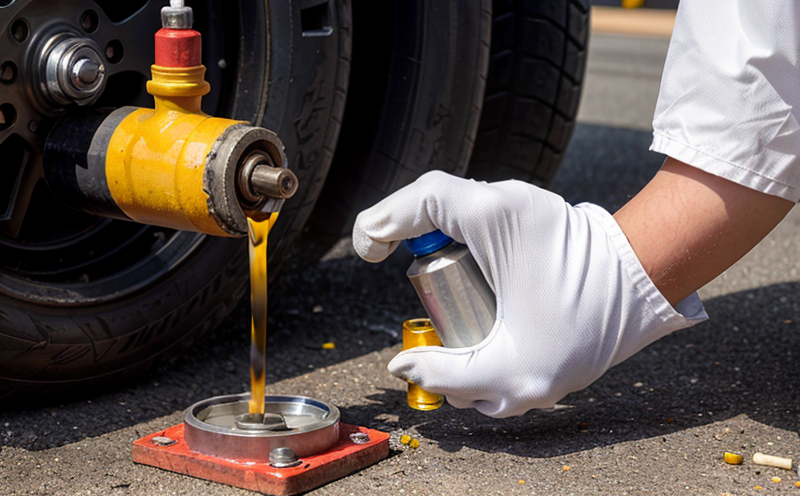ISO 6245 Water Content Testing of Petroleum Products (Karl Fischer)
The ISO 6245 standard provides a method for determining the water content in petroleum products using the Karl Fischer titrimetric technique. This test is crucial for ensuring product quality, particularly in fuels and lubricants where even trace amounts of moisture can lead to significant issues such as microbial growth, corrosion, and reduced performance.
The process involves the use of a reagent that reacts specifically with water and certain hydrocarbons. The reaction generates heat, which causes a color change or a potential drop in electrical resistance that is detected by an electrode. By titrating the reagent into the sample, the amount of water can be accurately determined.
The test method is applicable to various petroleum products including diesel fuel, gasoline, kerosene, and lubricating oils. It ensures that these fuels meet the stringent requirements set forth by international standards such as ISO 6245:2019. Compliance with this standard guarantees reliable performance of the product in diverse environmental conditions.
Preparation for testing typically involves ensuring the sample is representative of the bulk and free from contamination. The sample must then be degassed to remove any air bubbles which can interfere with the test results. This preparation step ensures accurate measurement without external variables affecting the outcome.
The Karl Fischer titration method used in ISO 6245 allows for precise quantification down to parts per million (ppm) levels of water content. This level of accuracy is essential for industries where even small amounts of moisture can have profound effects on product longevity and effectiveness. The test results are typically reported as percentage by volume, providing a clear indication of the purity of the petroleum product.
For quality managers and compliance officers, this testing ensures that products meet regulatory requirements and customer expectations regarding water content in fuels and lubricants. R&D engineers can use these results to optimize formulations for improved performance under various conditions. Procurement teams benefit from knowing they are receiving consistent and high-quality materials.
| Applied Standards |
|---|
| ISO 6245:2019 - Determination of water content in petroleum products by Karl Fischer titrimetric method |
The standard is widely recognized for its reliability and accuracy, making it the preferred choice for laboratories conducting this type of testing. Compliance with ISO 6245 ensures that all parties involved can trust the results obtained from the water content tests.
Applied Standards
Environmental and Sustainability Contributions
- The accurate measurement of water content helps prevent microbial contamination, which reduces waste and ensures resource efficiency.
- Avoidance of corrosive conditions in fuel tanks prolongs the life of storage facilities and reduces environmental impact from leaks or spills.
- Precise control over water content can lead to improved engine performance, reducing emissions and promoting sustainable practices.
Competitive Advantage and Market Impact
The ability to accurately measure and report the water content of petroleum products is a key differentiator in the market. By ensuring compliance with ISO 6245, laboratories can demonstrate their commitment to quality and reliability, which is highly valued by clients seeking consistent performance from fuels and lubricants.
For quality managers, the accuracy provided by this test method allows for better decision-making regarding product formulations and storage conditions. Compliance officers benefit from having a reliable tool for ensuring regulatory adherence, while R&D engineers can use these results to innovate and improve product characteristics further.
The market impact of accurate water content testing cannot be overstated. Consumers and businesses trust brands that provide products meeting stringent quality standards, and ISO 6245 compliance is one way to ensure this trust. In an increasingly competitive global marketplace, the ability to offer reliable, high-quality petroleum products can significantly enhance a company's reputation and market position.





